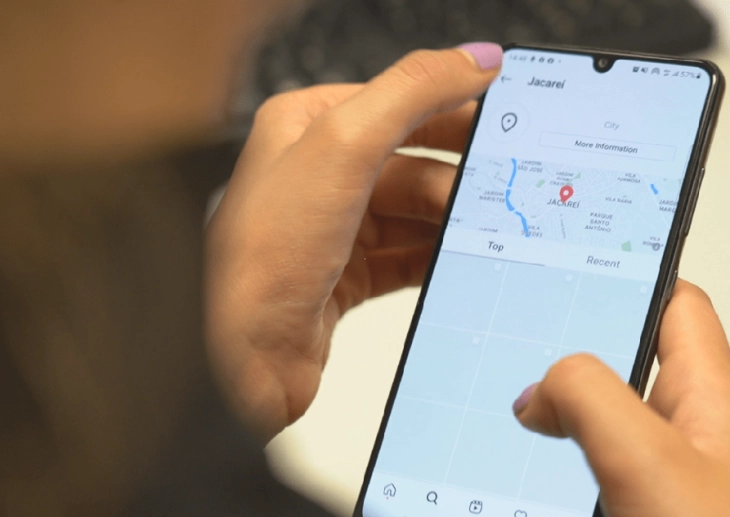Personal data – a constant target of countless dangers in the digital world

Skopje, 18 September 2021 (MIA) – We’re living in a so-called digital era in which the digital space helps us socialize, make friends, do our jobs or shopping. Everyday functioning seems almost impossible without websites and social media. However, personal data is the entry ticket to the digital world. Our full names, home addresses, phone numbers are only part of the data we make available to digital devices.
Angel Nakovski, long-term personal data protection expert, believes that the constant presence of social media, various groups for online communication, trade etc., contributes to a great deal of users’ ignorance when it comes to noticing or recognizing the potential dangers of such activities.
“The progress of IT, especially the internet, has created great advantages, but on the other hand, its misuse can have negative consequences to the economic-social and cultural environment, and it can sometimes destabilize a whole society. The potential of IT to store and process personal data increases the problem of its protection,” Nakovski tells MIA.
It’s concerning that a great deal of users will hand over their personal data without a second thought, such as their name, address, and often their social security number and bank account numbers in order to buy a seemingly interesting product at a lower price, without ensuring that the merchant is safe for conducting such activities.
That’s not the only issue, Nakovski points out.
“On the flip side, there are the e-merchants, and the issue of how much they apply personal data protection principles, if they have any protection system in place. The first step that shows us if an internet service is serious in its intentions is their cookie policy,” Nakovski says.
Bojan Kordalov, communicologist who is a PR expert, tells MIA that the users’ awareness of how to protect their data plays the biggest role in the whole thing.
“We tend to forget that the smartphones that almost everybody uses contain a lifetime of passwords that act as our identities, which is why it’s crucial to learn how to protect ourselves and use the right apps and digital platforms that enable protection,” Kordalov says.
The media’s role matters to increase the safety and protection of personal data
Kordalov says that the media’s responsibility when it comes to data misuse is huge because they handle a wide range of information. However, each individual also has this responsibility.
The Data Protection Agency agrees that the media’s role in preventing data abuse is important, because it often occurs online, and they add that fake news that may contain someone’s personal data can cause irreversible damage.
“We’ve seen countless fake e-mail addresses, fake websites, fake social media accounts, to the point where they now have a term and definition in the segment of IT security. We have to accept that we’re living in a hybrid system, where we’re online more and more, and we need to be aware of these threats,” says director of the Data Protection Agency, Igor Kuzeski.
Kuzeski says that it’s not a rare occurrence for the media to republish a certain piece of news without verifying it.
“Imagine when someone creates a fake Facebook account to present themselves in under a new identity, and in this race for sensationalism and news sharing, the media will share it without double-checking the source. It’s very difficult to make things right after that happens,” the agency’s director says.
He adds that placing unchecked information that contains someone’s personal data is made easier in the digital sphere.
“Sometimes this fake news contains someone’s personal data, placing them in a bad light in news content that has nothing to do with the real situation, and that’s why we have to be aware that these threats exist and happen every day,” he says.
All credible digital platforms are trying hard to create a positive user experience, which includes a higher degree of internet safety and the prevention of stealing and abusing anyone’s personal data. But, just as with any other type of crime, it’s an on-going battle, which is why experts think the solution lies in the constant upgrading of legislation and practices in this sphere.
“It takes a lot of work, especially in the data protection segment, because we read information every day about someone’s photos or videos being misused, and the subsequent creation of fake accounts that, again, entails the theft of personal data etc. Everyone’s got a huge responsibility in this segment, but I would like to point out that more is expected of public institutions, especially when it comes to adapting the education system to critical and creative thinking. Personal education plays a large part, because only aware citizens can be resistant and immune in the fight against fake news and the prevention of personal data misuse,” Kordalov says.
Nakovski says that responsibility must be a two-way street, but still, controllers and processors of personal data have to take the brunt of data protection.
Living in this advanced, fast and dynamic society, where everything is a click away, means that we have to allow access to some of our data.
Simply put, today it takes a click to order food, get a clothing store’s, restaurant’s, or shop’s contact info in seconds, and we’re able to contact our relatives and friends throughout the globe at any time. However, experts say that it’s essential for us to understand that if we want to function this quickly and enjoy the benefits of the digital world, we have to hand over our data, but we also have to protect it from being abused.
Simona Srbinoska
Translated by Dragana Knezhevikj







